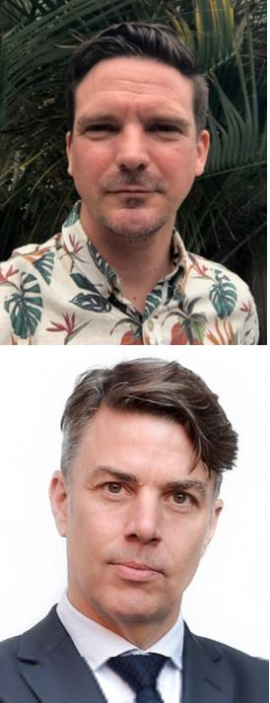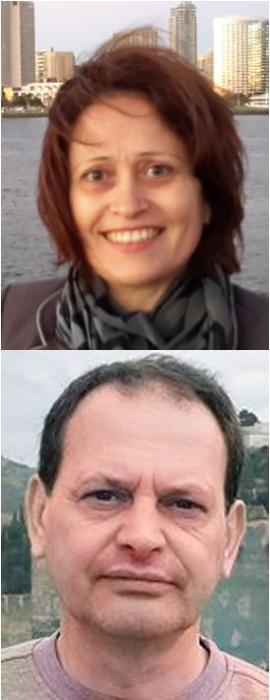|
If the newsletter does not display properly, please click here. |

|
||||
|
||||

|
||||
|
Dear friends and colleagues, We wish you a happy and healthy new year. May it be better than the last two years, in which we were forced to reduce many of the things we all would have liked to do: travelling, sitting together and interacting closely, sharing coffee-breaks and lunch or a beer after work. It will come back! With our first newsletter of the year we update you on the latest news from our KFG. Despite the ongoing pandemic situation our team is making every effort to keep the fellowship and workshop programme at the heart of the project running, and to keep our Centre going as a lively enterprise beyond mere academic exchange. Not least the number of recent publications presented in this newsletter speaks of the fruitful environment that our group has been able to provide in spite of the obstacles we had – and have – to overcome. The calls and announcements of future events promise many opportunities to continue our cooperation in the year ahead – although you will also notice that some workshops had to be postponed due to the recent developments. We are saying goodbye to the fellows who left us in 2021 and looking forward to welcome new colleagues to our group very soon. You will see that we can look back on an eventful period and look forward to a productive year ahead, for which we have many things planned. We will continue to make the best of the situation and use our resources to facilitate a lively and fruitful exchange despite times of physical distance. We will keep you posted. Last but not least: Our warm congratulations to those colleagues whose families have expanded over the last months or will so soon. We are keen to see the babies! All the best for 2022! Monika Wohlrab-Sahr and Christoph Kleine |
||||

|
||||
|
||||
|
||||
|
Currently, we are not offering any new fellowships. For inquiries please contact Johannes Duschka.
|
||||

|
||||
Call for Abstracts: KFG-Workshop on “(Im)Materiality of the Secular City: Trials and Tribulations”| 23–24 June 2022Convenors: Mariam Goshadze, Margaux Fitoussi and Thomas Schmidt-Lux The goal of this workshop is to discuss the materiality of the secular and of processes of secularisation in urban spaces. Much ink has been spilled on the ideological dimensions of the modern secular nation state, especially the legal and discursive techniques and realities of managing religious institutions. However, the physical reworking of urban spaces has received less attention even though it is well-acknowledged that grand projects of state-formation go hand in hand with on-the-ground alterations. Whether forced or voluntary, these transformations shape the urban terrain in conformation with visions of a “secular” and/or “modern city.” Inspired by the British Israeli architect Eyal Wiezman’s contention that the materiality of the built world has a life of its own, the goal of this workshop is to probe into the distinctive force of secular architecture and the processes of destruction and construction involved in its production. The workshop is planned to include the three thematic clusters of erasing religious pasts, assembling secular futures, and theoretical paradigms. If you wish you participate, please send your abstract to multiple-secularities@uni-leipzig.de. Deadline for abstracts (200–300 words) and short biography: 31 January Workshop: 23–24 June
|
||||
KFG Workshop: “Multiple Secularities in Africa and the Diaspora” | NEW DATE: 1–3 June 2022Convenors: Marian Burchardt, Magnus Echtler and Katharina Wilkens This workshop seeks to tackle epistemological distortions and blind spots through empirical studies of African social realities. In particular, we are interested in the heuristic values of divergent conceptualisations (religious/secular, spiritual/material, sacred/profane, transcendent/immanent, or singularly mundane). Regarding Africa and its diaspora, the power/knowledge topography of religion and secularity surely requires deeper investigation. With the concept of multiple secularities, the workshop propose to investigate the various ways in which religious and other social spheres or fields of practice are conceptually distinguished and institutionally differentiated. New Date: 1–3 June Hybrid event format: on-site event at Leipzig University and online via Zoom. If you wish to attend the workshop, please send a short inquiry to multiple-secularities@uni-leipzig.de.
|
||||

|
||||
Screening ReligionThe winter programme of our Screening Religion film series got off to a bumpy start. Due to the current situation we were unable to show the film "Dealing with Death" in November and our film for January "Outback Rabbis" also had to be cancelled. We are trying to find alternative dates and hope that we will be able to show the documentary "Between God and I" (MOZ, 2018, doc, 60 min, directed by Yara Costa) at the Cinémathèque Leipzig on 16 March as planned. Check out the trailer here. Screening Religion: Every two months we screen documentaries and movies rarely seen in German cinemas. Religion features in every film, be it as a catalyst for negotiation processes or a source of conflict, a marker of identity or a constitutive element of social background. Thus, we seek to screen films on religion whilst simultaneously screening for “religion” as a cinematic object. Some of the films are presented by their directors, others are introduced by KFG scholars. Up-to-date information and the full programme can be found on our website.
|
||||

|
||||
PublicationsThe work of our research group finds expression in various publication formats. In addition to monographs, edited volumes, and articles by individual members of the research group, we also make (preliminary) research results available for academic discourse in the form of working papers. Recent KFG publications: Books
Articles
Five Responses to Hubert Seiwert’s “Theory of Religion and Historical Research. A Critical Realist Perspective on the Study of Religion as an Empirical Discipline”: In November 2020, our Permanent Senior Research Fellow Hubert Seiwert published an article on “Theory of Religion and Historical Research. A Critical Realist Perspective on the Study of Religion as an Empirical Discipline” in the Zeitschrift für Religionswissenschaft (Journal for Religious Studies). His article evoked various reactions, both affirmative and critical. In the current issue of the journal, five responses address some important aspects of that engagement with the article, and Hubert finally discusses these points in the concluding response to his critics.
|
||||

|
||||
BulletinOur Bulletin gives the opportunity to publish event reports and to comment on current political, social or cultural events and developments from the perspective of Multiple Secularities, to place them in a broader context through our expertise or to present alternative perspectives. We would like to point to the latest entry: “Conference Report: The Formation of the Concepts of Secularity/Secularism in the Arab/Islamicate Worlds” by our Associate Senior Researcher Housamedden Darwish who organised and chaired this panel as part of the 27th International DAVO Congress.
|
||||
|
Kolleg-Forschungsgruppe |

|

